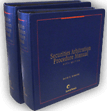In the spring of 2016, the Department of Labor and the White House announced dramatic changes in the obligations of brokers in retirement accounts. A month before the April 2016 announcement, at SIFMA’s 2016 Compliance & Legal Society Annual Seminar, the soon-to-be-announced Department of Labor fiduciary rule for retirement accounts was the subject of much conversation and analysis.
An Overview of the New Rule – A View from the Industry
In 2017, broker-customer standards will change that, for many years, distinguished brokers from investment advisers based on their different functions and their regulators. Brokers are regulated and licensed by FINRA and function under the auspices of the SEC, while investment advisers are registered with and regulated by the SEC and/or the states in which they conduct business. Investment advisers often have discretion to trade in an investor’s account without the investor’s trade-by-trade approval, while brokers generally must get permission for each trade in an investor’s account. Investment advisers have a fiduciary duty to their clients while brokers did do not. Brokers are required to make recommendations, which are suitable for their clients in accordance with FINRA Rule 2111, in a capacity not generally rising to the level of a fiduciary relationship. That will change soon.
After the 2008 Market Crash, the Dodd-Frank Wall Street Reform and Consumer Protection Act (“Dodd Frank”) was enacted to reform Wall Street. Among its goals was to determine if there was investor confusion regarding the roles and responsibilities of professionals who serve them and what, if anything, needed to be done to cure that confusion. One of Congress’ recommendations was for the SEC to consider rules that would apply expressly and uniformly (“harmonization of regulation”) to broker-dealers and investment advisers when providing personalized investment advice about securities to retail customers.
While DOL’s regulation was not revealed by the time of SIFMA’s conference, those in the know believe (and were correct) that it seeks to subject a person to ERISA’s fiduciary standards if, for a fee or other compensation, that person:
-
Provides certain advice directly to a plan, plan fiduciary, participant or beneficiary, IRA or IRA Holder (“Covered Advice”) and
- Represents or acknowledges fiduciary status or provides the advice under an agreement, arrangement or understanding that the advice is individualized to, or specifically directed to, the advice recipient for consideration in making investment or management decisions with respect to securities or other property.
In other words, for retirement accounts, brokers will be held to the investment advisor fiduciary duty.
If a customer Claimant in arbitration has retirement accounts and non-retirement accounts, some leading securities attorneys believe that it will be difficult, if not impossible, for defense counsel to argue that the new fiduciary standard applies to only the retirement accounts and that confusing exceptions to the new rule will confuse arbitrators who will, when confused, side with the equally confused individual customer. One defense attorney said: “We will now have more of a challenge to argue why this broker didn’t breach a fiduciary duty and why that duty should not apply to all the accounts. The rule will not just affect fees. It anticipates a flat fee for retirement accounts. It’s easy for the arbitrators to apply the highest standard – best interest of the customer – for all accounts and the new rule will be difficult to supervise.”


